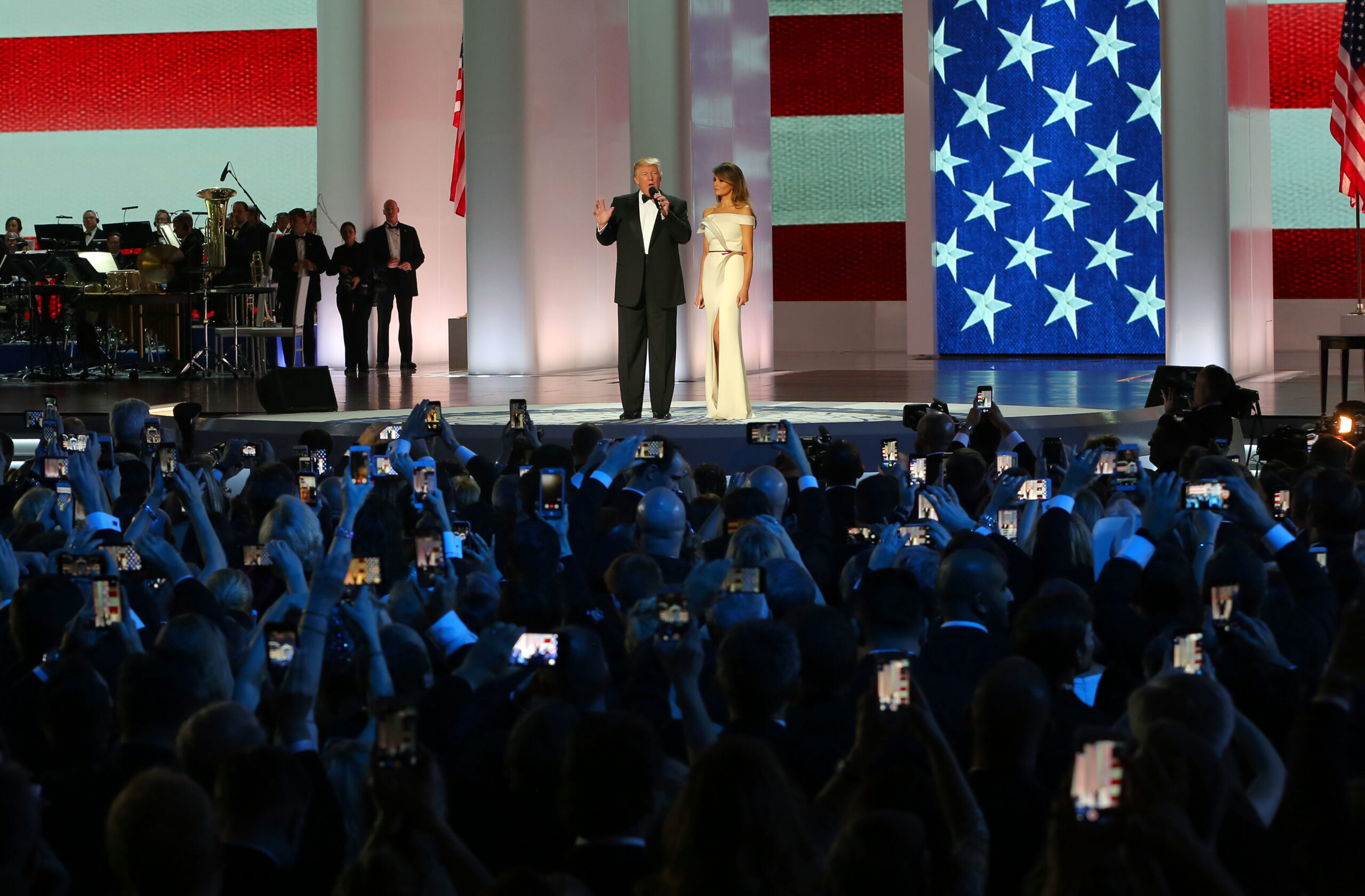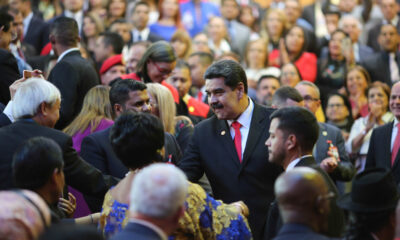Civilization
Why This Lifelong Democrat Voted for Trump
Chris Fenton reveals why he voted for Donald Trump – because Trump promises to fix broken systems everyone else accepts.

This past November, I cast a ballot that I never would have expected: I voted for Donald Trump.
Why I voted for Trump
As a lifelong Democrat, this decision was not rooted in ideology, but instead born of personal frustration with America’s broken systems – financial, judicial, and political.
My story is not just my own but a reflection of the shared struggles of countless Americans, in almost every economic class, who feel left behind and betrayed by a corrupted system now designed to serve the few at the expense of the many.
The initial catalyst for my frustration came during the 2008 financial crisis, a crucible that revealed the staggering flaws of America’s financial infrastructure. Lehman Brothers’ collapse wasn’t just a headline for me – it struck home. My family’s savings were tied to complex and opaque financial instruments I didn’t fully understand, sold to me by institutions that prioritized profit over transparency. When Lehman declared bankruptcy, my portfolio was wiped out. Overnight, our family’s financial security evaporated, and I was forced to confront the harsh realities of a system rigged against most Americans.
Broken judicial system
But the financial system wasn’t the only institution that failed me. My trust in the judicial system was similarly shattered. First, the law of the land failed to punish any of those responsible for the great financial crisis. This was followed by a high-stakes legal battle of my own with my former employer. That fight revealed a labyrinthine system that seemed more designed to exhaust and entrap honest litigants than to deliver justice. Despite having a strong case and compelling evidence as the plaintiff, I found myself mired in five years of procedural delays, a strategic bankruptcy by the opposing side, and exorbitant legal costs. The experience was as emotionally scarring as it was financially ruinous and came close to destroying my marriage.
My disillusionment didn’t stop there. America’s current political system, too, exposed itself. As someone who worked extensively in the U.S.-China relationship, I tried to share my firsthand experiences and insights to all audiences through a book I authored and the media appearances that followed. I hoped to encourage constructive dialogue on America’s position in an increasingly competitive world. Instead, I faced a harsh backlash that highlighted the destructive tribalism entrenched in today’s politics.
As a lifelong Democrat, it was distressing to be told “Lose my f-ing number” by longtime progressive friends, simply because I appeared with hosts like Tucker Carlson, Laura Ingraham, Steve Bannon, Charlie Kirk, Clay Travis, or Maria Bartiromo. Similar vitriolic responses will certainly result again when this piece publishes.
Incredible podcast today with Chris Fenton @TheDragonFeeder
We explore Disney's Mulan controversy, Hollywood and the NBA’s close ties with China, and what it will take for American corporations to stop fueling the rise of the CCP
Subscribe & listen today—https://t.co/fDstW0v9St— Charlie Kirk (@charliekirk11) September 10, 2020
Elusive balance
I had no intention of switching political sides; I was trying to share a balanced perspective with a broader audience. Yet, this willingness to engage with what was perceived as “the other side” became a black-balling event. First, a CNN producer bluntly told me they wouldn’t have me on as a guest because I had appeared on Fox News. Then, investors avoided a fund I raised, coldly stating, “We won’t invest with someone who talks to those people.” Topping it all off, challenging the current U.S.-China dynamic was portrayed as anti-Asian, a disillusioning smear that I found deeply offensive. “I’m a Democrat, and many of my friends are Chinese!” I’d protest, only to be met with silence or accusations that I was “enabling” the opposition.
Ostracism left me feeling politically homeless. I was labeled an outcast by the very community I had supported my entire life – not because of a shift in my values, but because of my choice to engage in discussions outside the approved echo chamber. The experience underscored how deeply broken our political discourse has become – where dialogue is punished and dissenting voices are cast out, even when the goal is constructive progress to protect American interests.
This year, my frustration finally reached a boiling point. I was tired of politicians who promised change but delivered more of the same. Worse, my own party’s presidential candidate famously promised on “The View” not to change a damn thing.
Trump rejects the status quo
Donald Trump, for all his flaws, represented a rejection of the status quo. His message resonated with millions of Americans who felt unseen and unheard. He wasn’t a polished politician, and that was the point. He spoke to our anger, our disillusionment, and our desperation for something different.
My vote for Trump wasn’t about embracing his ideology or ignoring his shortcomings. It was a pro-America protest vote, a way to signal my dissatisfaction with a current ailing system that had failed me and so many others. I wasn’t alone in this sentiment. The 2024 election was a referendum on today’s establishment, a wake-up call for a nation divided by economic and judicial inequality, institutional corruption, and cultural alienation.
Voting for Trump was not an act of blind faith. It was a calculated risk, a bet on the idea that disrupting the system might force it to reckon with its failures. I recognize the complexities and contradictions of that decision. Trump’s presidency will bring its own set of challenges, and not all his policies will align with my values. Yet, his election has and will continue to force a national conversation about the direction of our country and the need for a systemic reset.
The country must look in the collective mirror
Today, as I reflect on my vote, I am struck by the parallels between my personal journey and the broader story of America. Just as I had to rebuild my life after financial ruin, judicial betrayal, and political ostracism, our nation must confront its flaws and work toward a more impartial future. This requires not just identifying the problems but having the courage to take bold and sometimes uncomfortable actions to address them.
For me, the answer lies in reclaiming the principles that made America great: fairness, accountability, civil discourse, and opportunity for all. This means holding powerful institutions to account, from Wall Street and Washington to the judicial system. It means rebuilding trust in our political system by prioritizing the needs of most citizens over the interests of the elite. And it means fostering a culture of resilience and innovation that empowers individuals to succeed in the face of adversity.
The challenges we face as a nation are immense, but they are not insurmountable. My own experiences have taught me that even in the darkest moments, there is a path forward. It requires resilience, self-reflection, and a commitment to rebuilding – not just for us, but also for future generations.
A new journey
Voting for Trump was not the end of my political journey; it was the beginning of a deeper exploration of what it means to be an American in a time of upheaval. It was a recognition that change is messy, imperfect, and often uncomfortable. But it is also necessary.
As we look to the future, I hope my story serves as a reminder that our choices are shaped by the systems we inhabit. When those systems fail us, it is our responsibility to demand change, hoping for better. Whether you agree with my decision or not, I hope we can all agree on the need for a government, judiciary, and economy that work for everyone – not just the privileged few.
The journey to a more perfect union will not be easy, but it is a journey worth taking. Let’s rebuild together, with hope, determination, and a shared commitment to the ideals that unite us as Americans.
This article was originally published by RealClearPolitics and made available via RealClearWire.
Chris Fenton is a longtime media executive, producer, and author of “Feeding the Dragon: Inside the Trillion Dollar Dilemma Facing Hollywood, the NBA, and American Business.” As an informal advisor to Congress’ Select Committee on China and a member of the U.S.-Asia Institute, Council on Foreign Relations, National Committee on U.S. China Relations, and Third Way Think Tank, he founded his own firm, FENTON · International Business Strategy & Communications to help the private sector and Washington navigate America’s complicated relationship with non-allied nations. Follow him on X @TheDragonFeeder.
-

 Civilization4 days ago
Civilization4 days agoWhy Europe Shouldn’t Be Upset at Trump’s Venezuelan Actions
-

 Christianity Today4 days ago
Christianity Today4 days agoSurprising Revival: Gen Z Men & Highly Educated Lead Return to Religion
-

 Executive5 days ago
Executive5 days agoWaste of the Day: Can You Hear Me Now?
-

 Civilization2 days ago
Civilization2 days agoTariffs, the Supreme Court, and the Andrew Jackson Gambit
-

 Civilization2 days ago
Civilization2 days agoWhy Europe’s Institutional Status Quo is Now a Security Risk
-

 Civilization3 days ago
Civilization3 days agoDeporting Censorship: US Targets UK Government Ally Over Free Speech
-

 Executive3 days ago
Executive3 days agoWaste of the Day: Wire Fraud, Conflicts of Interest in Connecticut
-

 Education4 days ago
Education4 days agoWaste of the Day: Throwback Thursday – The Story of Robosquirrel










